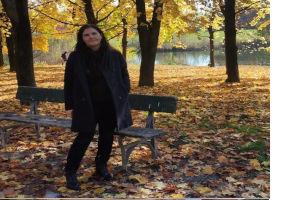Today's world is characterized by profound complexity at all levels, the world scenario increasingly requires the ability to be resilient, open to change and able to solve problems that arise, even in a sudden way.
 The school must set itself the goal of preparing future generations to face the new scenario by providing students with suitable, adequate and effective tools.
The school must set itself the goal of preparing future generations to face the new scenario by providing students with suitable, adequate and effective tools.
The programs of the Italian school were revised about ten years ago and, although they contained declarations of principle very open to the demands posed by international documents, they are still very encyclopedic. more attentive to the contents to be imparted, discipline by discipline, rather than to the personal, social, cultural and metacognitive skills so required today. The issue of skills is often approached in the wrong way, as if there were on the one hand the knowledge and skills, more easily "measurable", and on the other one the competences, or soft skills, more difficult to identify.
Rethinking knowledge and curricula means giving dignity to skills, recognizing their powerful role in training and education, not in competition with knowledge but subsequent to it, as a basis for study, for individual development and, from a temporal point of view , for the work. Working for skills means favoring the positive impact on teaching practices, as the cognitive activation of students occurs almost exclusively in certain conditions in which the motivation to learn is activated. Current school curricula, presenting the disciplines in their individuality, fragment knowledge and do not allow a full development of the cognitive potential of students.
It is necessary to redefine the curricula by highlighting the choice of supporting nuclei of the individual disciplines in order to then offer interdisciplinary paths, able to overcome fragmentation and lead to transversal knowledge. Studies on education show that motivation represents the condition for meaningful, lasting learning to take place, and for this to happen it is necessary to propose activities that lower the affective filter, that are engaging and that require the active and proactive participation of students.
Particular attention must be paid to evaluation practices, implementing the formative and observational evaluation, the evaluation rubrics, to provide students with descriptive judgments that guide them towards improvement which must be the ultimate goal of the school. One of the long-standing problems of the Italian school is represented by early school leaving: it is therefore necessary to act to counteract school failure through inclusive teaching practices, with methodologies that develop transversal skills such as Problem Solving, Debate, Clil, Coding and so on. In this way, not only are the most vulnerable students allowed to achieve educational success but also the talents and excellence, often ignored by the school system, are valued.
The redefinition of curricula and teaching practices can only make use of the collaboration of the existing scientific bodies, Invalsi, Indire, Inspection Service, with a view to making the best use of all the resources present at the Ministry of Education by extending the collaboration with the representatives of the school , universities, professional and disciplinary associations. The commission for the national curriculum must be implemented and extended to experts who have direct experience of teaching practices to favor the drafting of new curricula adapted to the requirements of the most recent international documents.
The school of the new millennium acts in a context in which certainties have given way to uncertainties, strong ties are now weak ties, nothing can be taken for granted and nobody knows exactly what its future will be like. Students have the right to a quality, inclusive education that aims at the best for everyone and that leaves no one behind. Rethinking knowledge means that the school knows how to present itself as the certainty of success in life, meaning success as the achievement of personal happiness.
Manuela Rivetti Laureata in Lingue e Letterature Straniere presso l’Università degli Studi di Torino, ho conseguito le abilitazioni all’insegnamento per le classi di concorso A45 e A46, lingua inglese nella scuola secondaria di primo grado e lingua e cultura inglese nella secondaria di secondo grado. Ho inoltre conseguito l’abilitazione all’insegnamento nella scuola dell’infanzia e la doppia abilitazione nella scuola primaria, sia come docente su posto comune che come docente di inglese. La lingua inglese e l’insegnamento sono la mia passione, e per questo ho proseguito il mio percorso con un Corso di Perfezionamento in Didattica delle Lingue Straniere. A partire dal 2009 ho svolto diversi corsi di formazione per i docenti della scuola primaria in qualità di tutor per lo sviluppo delle competenze linguistiche--comunicative e metodologico – didattiche presso l’ USR Piemonte. Nell’anno scolastico 2012-13 sono stata la referente del Progetto Comenius Regio “Boosting Knowledge Through Music “, svolto in collaborazione con alcune scuole del Devon, tra cui un istituto “for special needs”, che mi ha permesso di approfondire la conoscenza del sistema scolastico inglese e della cultura anglosassone in materia di insegnamento - apprendimento. Dal 2007 mi occupo di Orientamento scolastico e di continuità come Funzione strumentale. Ho partecipato a vari progetti sulla costruzione del curricolo verticale coordinati dal prof. Martin Dodman e lo scorso anno scolastico ho fatto parte del suo gruppo di lavoro per la correzione nazionale delle prove Invalsi di lingua inglese. Condivido il motto di Edgar Morin, “meglio una testa ben fatta che ben piena”, insieme a quello di Will



